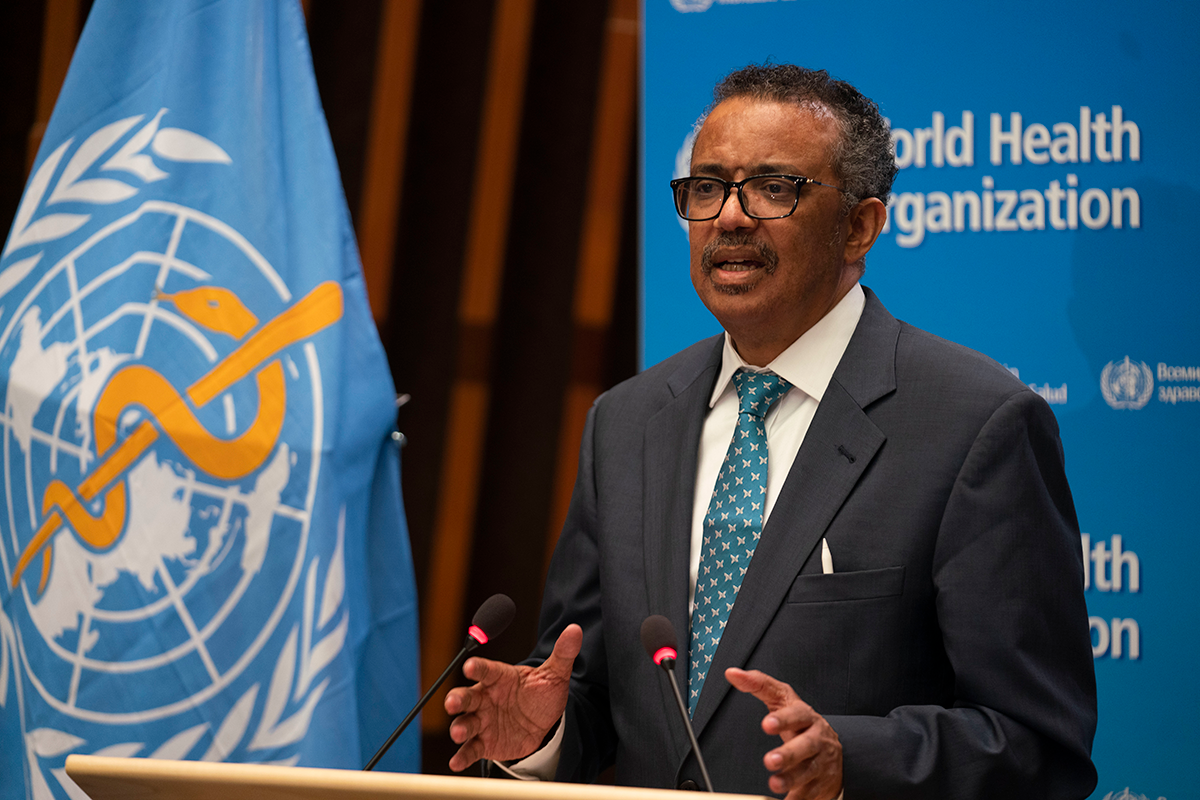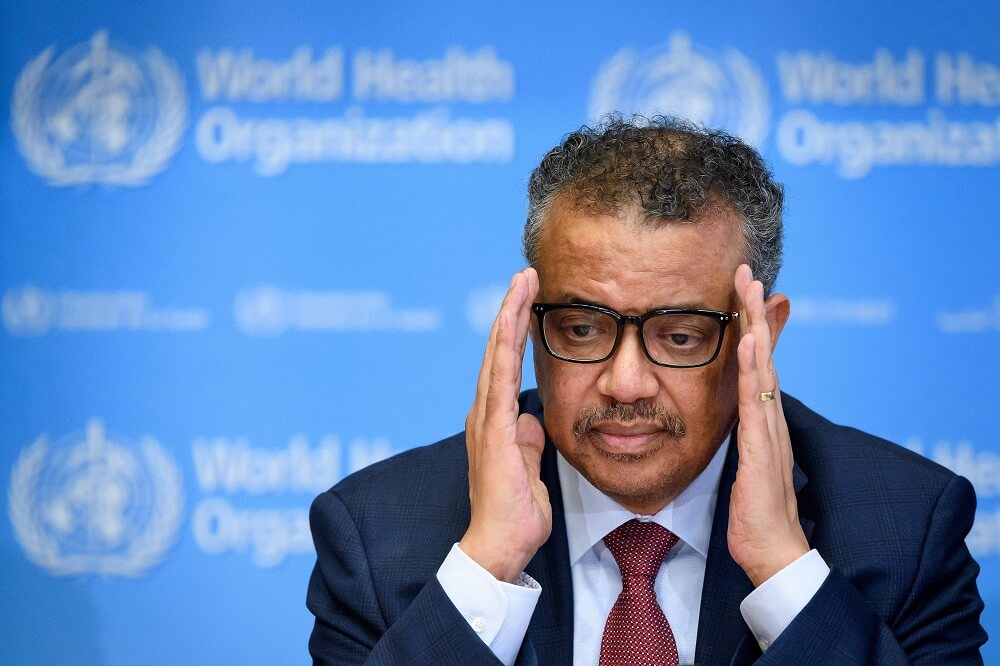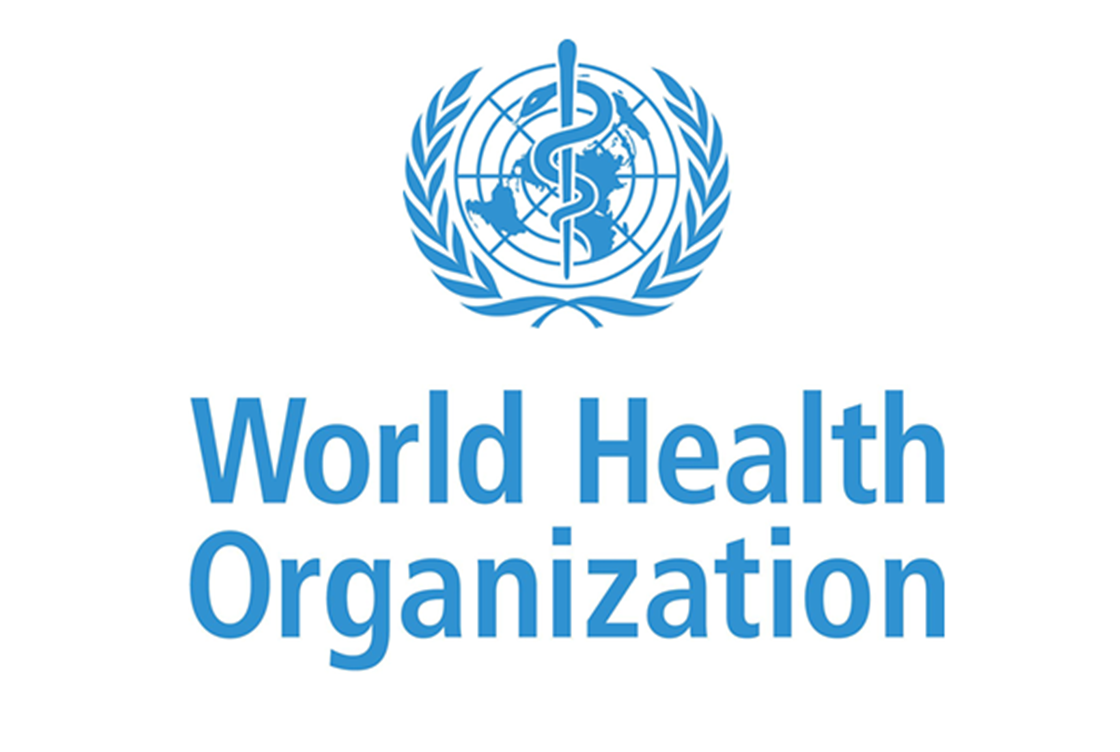Headlines
WHO Names Six African Countries to Receive Technology for Covid Vaccine Production

By Derrick Bangura.
Dr. Tedros Adhanom Ghebreyesus, Director-General of the World Health Organization (WHO), has named Nigeria and five other African countries – Egypt, South Africa, Senegal, Kenya, and Tunisia – as the first to receive the technology needed to manufacture mRNA (messenger ribonucleic acid), which is used in the production of COVID-19 vaccines.
Ghebreyesus, who made the announcement at the European Union-African Union conference in Brussels on Friday, stated that all of the countries applied and were chosen as recipients.
The announcement was made in the presence of President Macron, President Ramaphosa, the President of the European Council, Charles Michel, and the President of the European Commission, Ursula von der Leyen, at a ceremony hosted by the European Council, France, South Africa, and the World Health Organization.
mRNA vaccines differ from conventional vaccines in that they contain a weakened or inactive fragment of the target virus that causes antibodies to be produced.
Instead, these game-changing vaccinations use laboratory engineering mRNA, which tells cells how to make a protein that looks like a portion of a protein found in the virus in question, in this case, COVID-19.
This causes the body to produce antibodies in order to neutralize the foreign protein. The antibodies then stay in the body to fight future COVID-19 infections. COVID vaccines from Pfizer and Moderna are made with this technology.
The COVID-19 pandemic, according to Ghebreyesus, demonstrated that relying on a few firms to offer global public goods was both restrictive and harmful.
With the addition of Nigeria to the four countries earlier approved for the vaccine production on the continent, efforts by the Buhari administration to change the selection that the country considered unrepresentative of the needs, capabilities and population distribution in Africa has thus yielded the desired result.
President Buhari has since welcomed the development.
In his contribution at the Roundtable on Health Systems and Vaccine Production at the ongoing 6th Europe-Africa Summit in Brussels, Belgium yesterday, Buhari called for a closer collaboration with the EU to tackle the effects of the pandemic on the African continent.
He expressed delight at receiving the news of the selection of Nigeria among recipients of mRNA Vaccine technology transfer.
Buhari said: “We shall ensure the best use is made of the opportunity. Nigeria also offers to host the Bio-manufacturing Training hub proposed by World Health Organisation (WHO). We commit to providing support to make the hub functional in the shortest possible time.”
While commending the efforts of the foreign partners in making the Covid-19 vaccine available, he urged them to do more as less than 10 per cent of the African population had gotten the jab, stressing that this situation could negatively affect Africa’s developmental projections.
“In the mid- to long-term, the best way to address health emergencies and reach universal health coverage is to significantly increase the capacity of all regions to manufacture the health products they need, with equitable access as their primary endpoint,” Buhari said.
Responding to the announcement, President Cyril Ramaphosa of South Africa said: “This is an initiative that will allow us to make our own vaccines and that, to us, is very important. It means mutual respect, mutual recognition of what we can all bring to the party, investment in our economies, infrastructure investment and, in many ways, giving back to the continent.”
The global mRNA technology transfer hub was established in 2021 to support manufacturers in low- and middle-income countries to produce their own vaccines, ensuring that they have all the necessary operating procedures and know-how to manufacture mRNA vaccines at scale and according to international standards.
Also, French President, Emmanuel Macron said: “Improved public health benefits, supporting African health sovereignty and economic development are the principal goals of strengthening local production in Africa. In an interconnected world, we need stronger and new partnerships between countries, development partners and other stakeholders to empower regions and countries to fend for themselves, during crises, and in peacetime.”
On his part, President of the European Council, Charles Michel said the world needed to create an environment where every scientist, health worker, and government can band together for a common cause by working together “to build new solutions to protect what is most precious – our health and our lives.” He said the initiative will ensure that all countries build the necessary capacity to produce their own vaccines and other health technologies.
The WHO mRNA technology transfer hub is part of a bigger initiative to help low- and middle-income nations create their own vaccines, medicines, and diagnostics in order to respond to health emergencies and achieve universal health coverage.
Headlines
Noble Ladies Champion Women’s Financial Independence at Grand Inauguration in Abuja

Women from diverse backgrounds across Nigeria and beyond gathered at the Art and Culture Auditorium, Abuja, for the inauguration and convention of the Noble Ladies Association. The event, led by the association’s Founder and “visionary and polished Queen Mother,” Mrs. Margaret Chigozie Mkpuma, was a colourful display of feminine elegance, empowerment, and ambition.
The highly anticipated gathering, attended by over 700 members and counting, reflected the association’s mission to help women realise their potential while shifting mindsets away from dependency and over-glamorization of the ‘white collar job.’ According to the group, progress can be better achieved through innovation and creativity. “When a woman is able to earn and blossom on her own she has no reason to look at herself as a second fiddle,” the association stated.
One of the association’s standout initiatives is its women-only investment platform, which currently offers a minimum entry of ₦100,000 with a return of ₦130,000 over 30 days—an interest rate of 30 percent. Some members invest as much as ₦1 million, enjoying the same return rate. Mrs. Mkpuma explained that the scheme focuses on women because “women bear the greater brunt of poverty” and the platform seeks “to offer equity in the absence of economic equality.”
Education is also central to the Noble Ladies’ mission, regardless of age. Their mantra, “start again from where you stopped,” encourages women to return to school or upgrade their skills at any stage in life. The association believes that financial stability is vital in protecting women from cultural practices that dispossess widows of their late husbands’ assets, while also enabling them to raise morally and socially grounded families.
Founded on the vision of enhancing women’s skills and achieving financial stability, the association rests on a value system that discourages pity and promotes purpose. “You have a purpose and you build on that purpose to achieve great potentials and emancipation,” Mrs. Mkpuma said.
A criminologist by training and entrepreneur by practice, she cautions against idleness while waiting for formal employment. “There are billions in the informal and non-formal sectors waiting to be made,” she said, rejecting the “new normal of begging” and urging people to “be more introspective to find their purpose in life and hold on to it.”
Mrs. Mkpuma’s management style keeps members actively engaged, focusing on vocational skills and training to prepare them for competitive markets. She is exploring “innovative integration of uncommon technologies” and is already in talks with international franchises to invest in Nigeria, with Noble Ladies as first beneficiaries.
The association’s core values include mutual respect, innovation, forward-thinking, equal opportunity, and financial emancipation. With plans underway to establish a secretariat in the heart of Abuja, the group aims to expand its impact.
The event drew high-profile guests, including former Inspector General of Police, Mike Okiro, and a host of VIPs, marking a significant milestone in the association’s drive for women’s empowerment.
Headlines
NEPZA, FCT agree to create world-class FTZ environment

The Nigeria Export Processing Zones Authority (NEPZA) has stepped in to resolve the dispute between the Federal Capital Territory Administration and the Abuja Technology Village (ATV), a licensed Free Trade Zone, over the potential revocation of the zone’s land title.
Dr. Olufemi Ogunyemi, the Managing Director of NEPZA, urged ATV operators and investors to withdraw the lawsuit filed against the FCT administration immediately to facilitate a roundtable negotiation.
Dr. Ogunyemi delivered the charge during a courtesy visit to the Minister of the Federal Capital Territory, Barrister Nyesom Wike, on Thursday in Abuja.
You will recall that the ATV operators responded to the revocation notice issued by the FCT administration with a lawsuit.
Dr. Ogunyemi stated that the continued support for the growth of the Free Trade Zones Scheme would benefit the nation’s economy and the FCT’s development, emphasizing that the FCT administration recognized the scheme’s potential to accelerate industrialisation.
Dr. Ogunyemi, also the Chief Executive Officer of NEPZA, expressed his delight at the steps taken by the FCT minister to expand the economic frontier of the FCT through the proposed Abuja City Walk (ACW) project.
Dr. Ogunyemi further explained that the Authority was preparing to assess all the 63 licensed Free Trade Zones across the country with the view to vetting their functionality and contributions to the nation’s Foreign Direct Investment and export drives.
“I have come to discuss with His Excellency, the Minister of the Federal Capital Territory on the importance of supporting the ATV to succeed while also promoting the development of the Abuja City Walk project. We must work together to achieve this for the good of our nation,” he said.
On his part, the FCT Minister reiterated his unflinching determination to work towards President Bola Ahmed Tinubu’s Renewed Hope Agenda by bringing FDI to the FCT.
“We must fulfil Mr. President’s promises regarding industrialization, trade, and investment. In this context, the FCT will collaborate with NEPZA to review the future of ATV, a zone that was sponsored and supported by the FCT administration,” Wike said.
Barrister Wike also said that efforts were underway to fast-track the industrialisation process of the territory with the construction of the Abuja City Walk.
The minister further said the Abuja City Walk project was planned to cover over 200 hectares in the Abuja Technology Village corridor along Airport Road.
According to him, the business ecosystem aimed to create a lively, mixed-use urban center with residential, commercial, retail, hospitality, medical, and institutional facilities.
He added that the ACW would turn out to be a high-definition and world-class project that would give this administration’s Renewed Hope Agenda true meaning in the North-Central Region of the country.
Barrister Wike also indicated his continued pursuit of land and property owners who failed to fulfil their obligations to the FCT in his determination to develop the territory.
Headlines
Benue IDPs block highway, demand return to ancestral homes

Vehicular movement along the Yelwata axis of the Benue–Nasarawa highway was brought to a standstill on Wednesday as Internally Displaced Persons, IDPs, staged a protest, demanding immediate return to their ancestral homes.
The protesters, believed to be victims of persistent attacks by suspected herdsmen, blocked both lanes of the busy highway for several hours, chanting “We want to go back home”.
The protest caused disruption, leaving hundreds of motorists and passengers stranded.
Eyewitnesses said the displaced persons, many of whom have spent years in overcrowded IDP camps, are expressing deep frustration over the government’s delay in restoring security to their communities.
“We have suffered enough. We want to return to our homes and farms,” one of the protesters told reporters at the scene.
Security personnel were reportedly deployed to monitor the situation and prevent any escalation, though tensions remained high as of press time.
Efforts to reach the Benue State Emergency Management Agency, SEMA, and other relevant authorities for comment were unsuccessful.
-

 Headlines4 years ago
Headlines4 years agoFacebook, Instagram Temporarily Allow Posts on Ukraine War Calling for Violence Against Invading Russians or Putin’s Death
-

 Headlines4 years ago
Headlines4 years agoNigeria, Other West African Countries Facing Worst Food Crisis in 10 Years, Aid Groups Say
-

 Foreign4 years ago
Foreign4 years agoNew York Consulate installs machines for 10-year passport
-

 News1 year ago
News1 year agoZero Trust Architecture in a Remote World: Securing the New Normal
-

 Entertainment3 years ago
Entertainment3 years agoPhyna emerges winner of Big Brother Naija Season 7
-

 Headlines2 years ago
Headlines2 years agoNigeria Customs modernisation project to check extortion of traders
-

 Entertainment2 years ago
Entertainment2 years agoMovie download platform, Netnaija, announces closure
-

 Economy2 years ago
Economy2 years agoWe generated N30.2 bn revenue in three months – Kano NCS Comptroller













